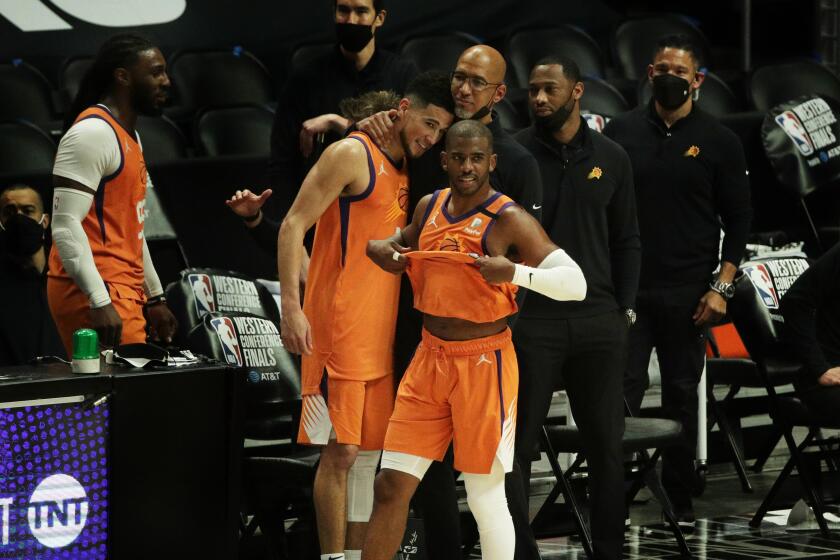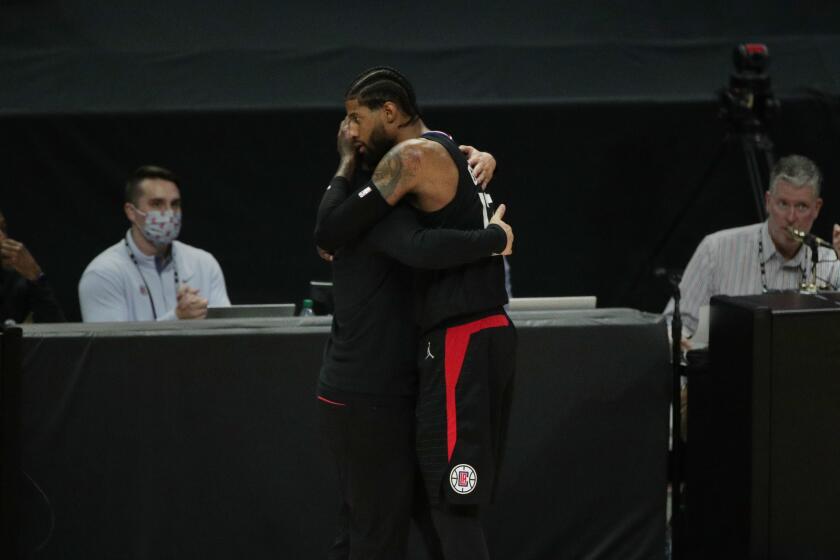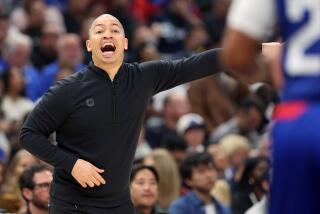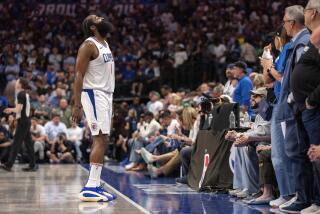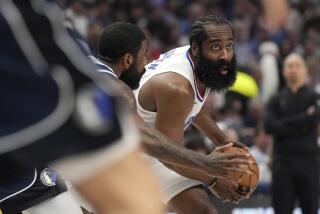Commentary: NBA playoffs 2021: The postseason of broken-down dreams
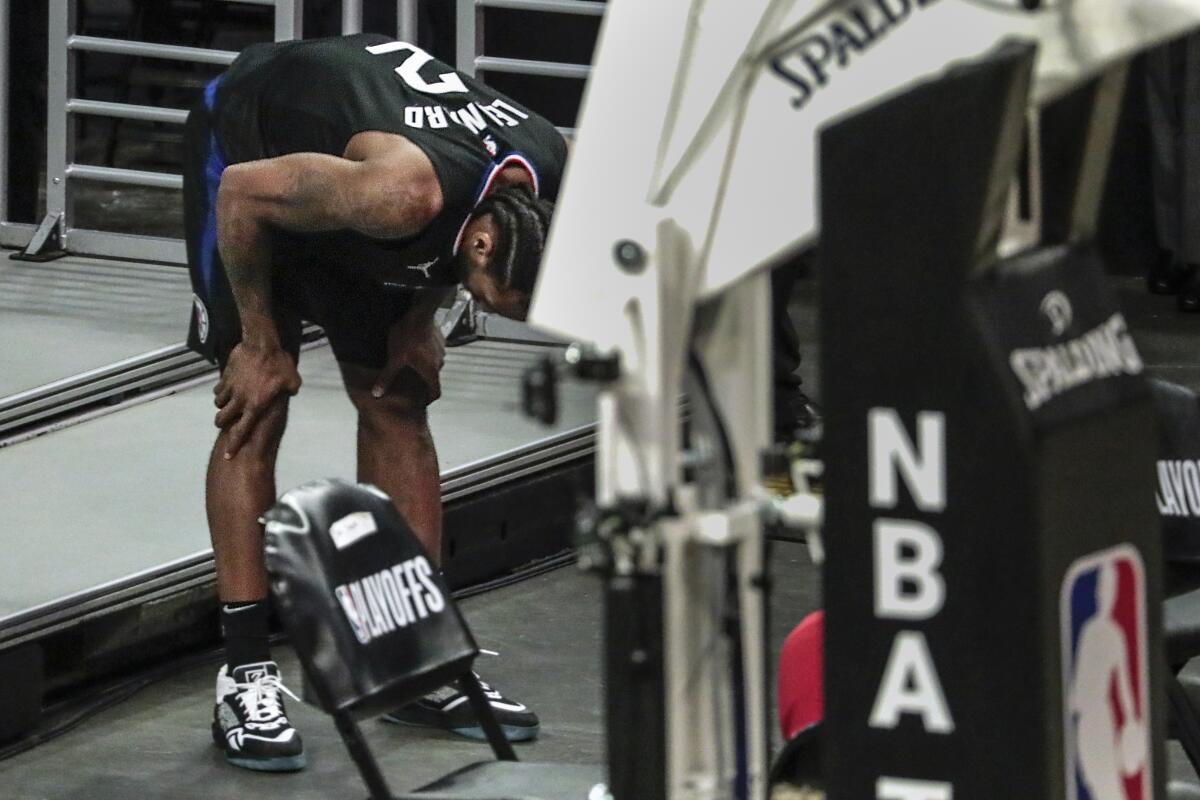
While the Clippers reached a level during the postseason they’ve never visited, they left the playoffs again dogged by the two-word phrase that’s defined their last decade — “what if?”
What if Donald Sterling had kept his mouth shut instead of getting caught on tape, an all-time distraction given to one of the best Clippers teams ever? What if Blake Griffin stayed healthy in the postseason? What if Chris Paul didn’t tear up his hand when it got caught in Gerald Henderson’s jersey? What if the pandemic hadn’t forced the team to shut it down right when they were heating up?
Almost every exit comes with these questions, even if the answer usually is that the team simply wasn’t good enough.
Yet with Kawhi Leonard, the Clippers’ best player, forced out of the postseason because of a knee injury, it gave the latest “what if” plenty of validity.
The Clippers, at least this time, aren’t alone in their misery, injuries playing a role (and in some cases, obliterating) title dreams all over the NBA.
Across the street from Staples Center while the Phoenix Suns clinched the Western Conference title, LeBron James chilled at a Sparks game. It’s not impossible to imagine that he could’ve been on that court, leading a surging Lakers team with him and Anthony Davis healthy.
Suns point guard Chris Paul has known heartache in trying to reach the NBA’s pinnacle, with past playoff failures. A standout Game 6 has him there.
It just never happened.
Then there’s the team the Suns beat after they came back from a 2-1 deficit to bounce the Lakers, the Denver Nuggets. Jamal Murray, their second-best player, missed the last chunk of the season with a torn knee ligament.
Before the Clippers lost Leonard against the Jazz, they benefited from facing Utah without starting point guard Mike Conley because of an injured hamstring.
Before we crown the Suns as the luckiest team left standing, Chris Paul was rendered half-useless by a stinger in the first minutes of the playoffs and later had to overcome COVID-19 to get to his first Finals.
In the East, Boston Celtics star Jaylen Brown didn’t make it to the playoffs. Joel Embiid, Philadelphia’s MVP candidate, had to play on a torn meniscus. And the Brooklyn Nets, the NBA’s most-talented team, had to try to survive with a hampered James Harden [hamstring] and an absent Kyrie Irving [ankle].
That was all before the Eastern Conference finals, when Atlanta star Trae Young injured his foot in an a freak accident with an official and Milwaukee star Giannis Antetokounmpo hyperextended a knee. Neither player was able to play in Game 5 of their series Thursday night.
Medical officials working for NBA teams have pointed to the compressed nature of this season’s schedule, a decision driven in part as a way to satisfy NBA broadcast partners who lost content because of the pandemic shutdown.
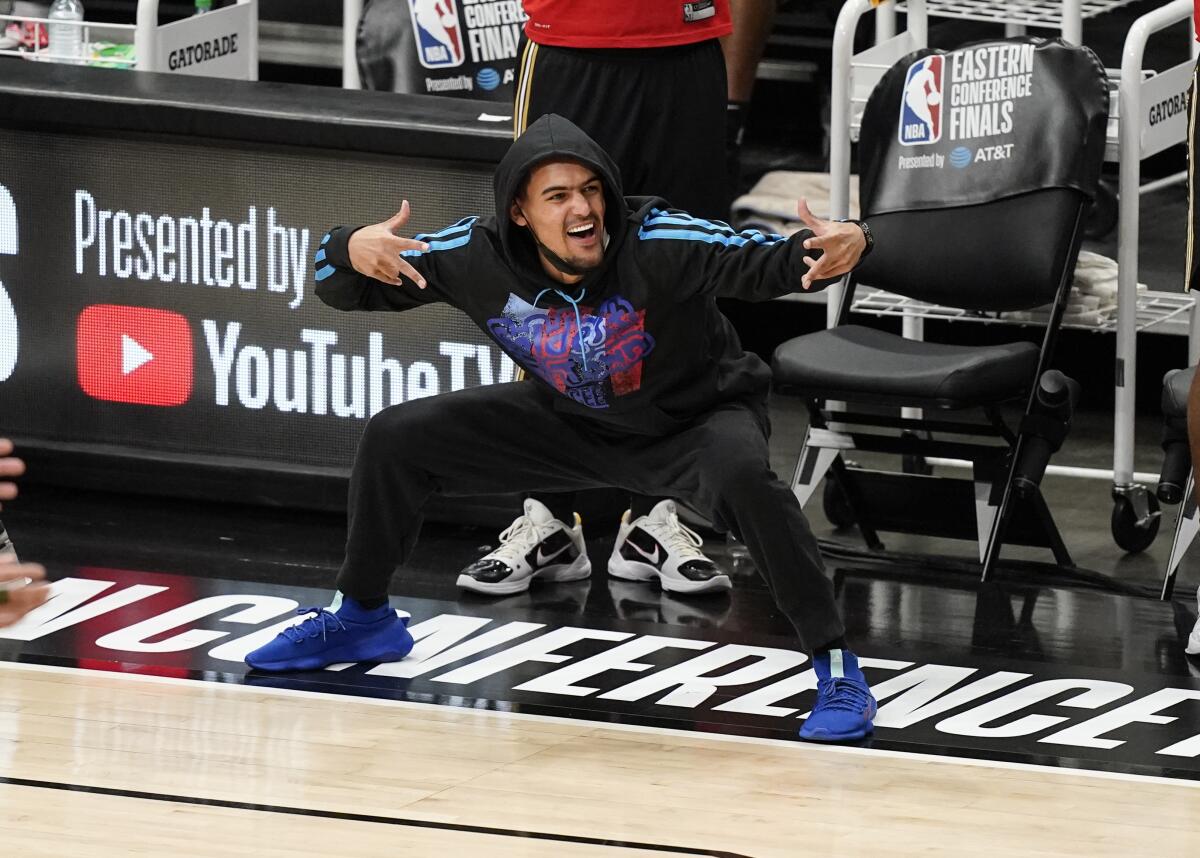
League officials have maintained that injury rates aren’t out of line with past data, even if a record number of All-Stars have missed playoff games this year. They say the hurry-up schedule, which was agreed to by the players’ union, was also about getting the NBA back to a normal schedule as quickly as possible.
The truth is probably somewhere in the middle. The NBA’s decisions to hustle the start of the year to keep its place on Christmas broadcasts and to be sure to finish the playoffs before the Summer Olympics meant less time than normal for rest and recovery.
This year, the NBA will play a 72-game schedule and a full postseason in 213 days if the NBA Finals go seven games. In 2018-19, the last “normal” season, the NBA played 82 games and a full postseason in 241 days — it would’ve been 244 had those Finals gone seven.
There are probably some lines that can be drawn between those numbers and the injuries we’ve seen this season — and team trainers and doctors are drawing them. But injuries playing a role in the playoffs isn’t anything new.
From Isiah Thomas’ ankle in 1988 to Byron Scott’s shoulder and James Worthy’s ankle in 1991 to Kevin Durant’s calf (and then Achilles) in 2019, it’s an unfortunate reality in the sport.
The silver lining to all these injuries is a bit of a postseason chaos, with unexpected characters and fresh storylines born out of all these sprains and strains. In a way, it’ll probably end up accomplishing what the goal of the playoffs should be anyway — it’ll best tell the story of this season.
While the Clippers had their greatest playoff run fall short of a title, the future is uncertain with Kawhi Leonard’s health and possible free agency.
Nothing this year was normal, from the intense testing routines to the empty arenas to the masked coaches and travel restrictions. Why should the playoffs capping this season be any different?
So instead of wondering what could’ve happened had Leonard been healthy or if Davis’ knee had never buckled, embrace what is happening as this season comes to its finish line.
None of this pandemic season has been normal; the league’s champion shouldn’t be either.
More to Read
Go beyond the scoreboard
Get the latest on L.A.'s teams in the daily Sports Report newsletter.
You may occasionally receive promotional content from the Los Angeles Times.

